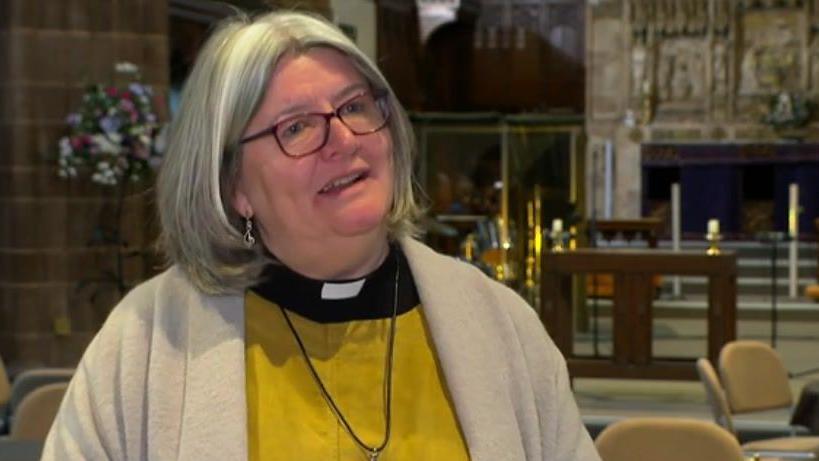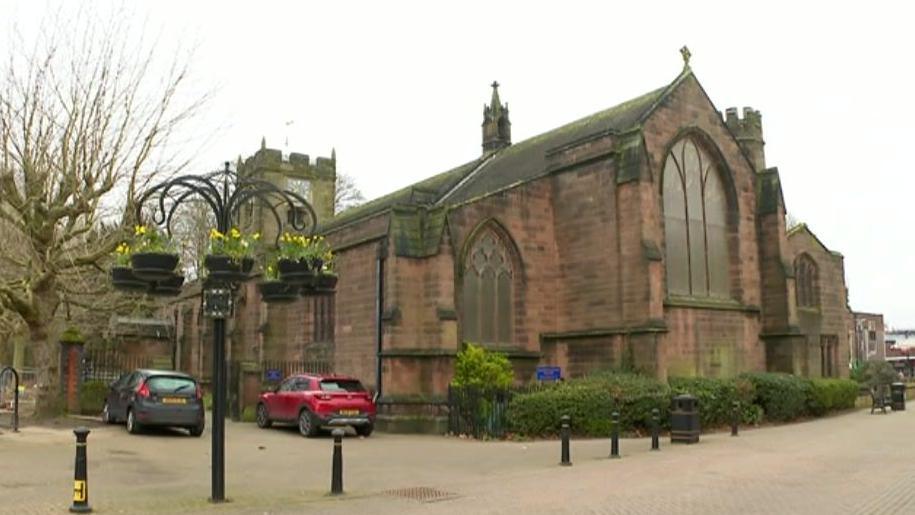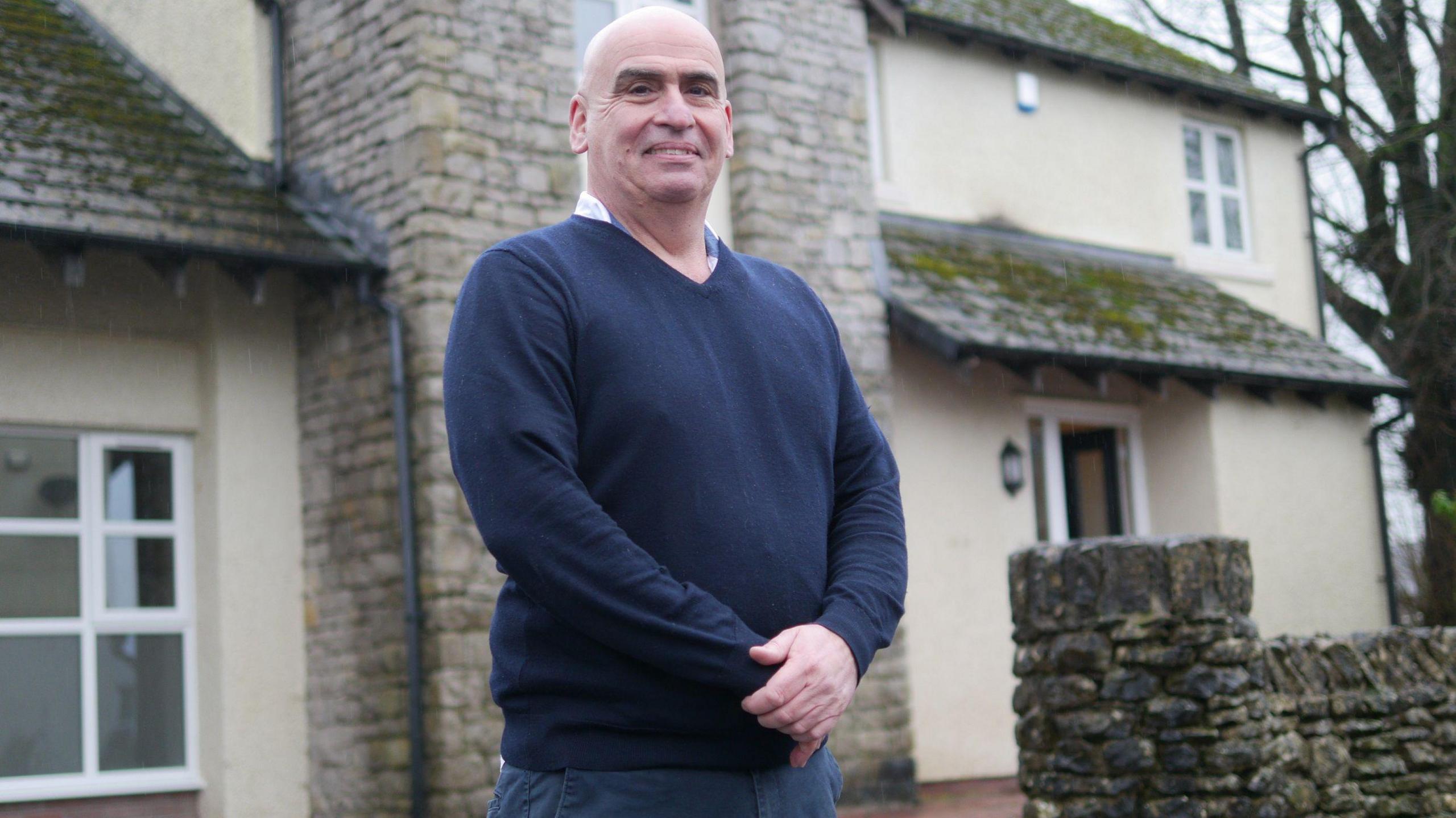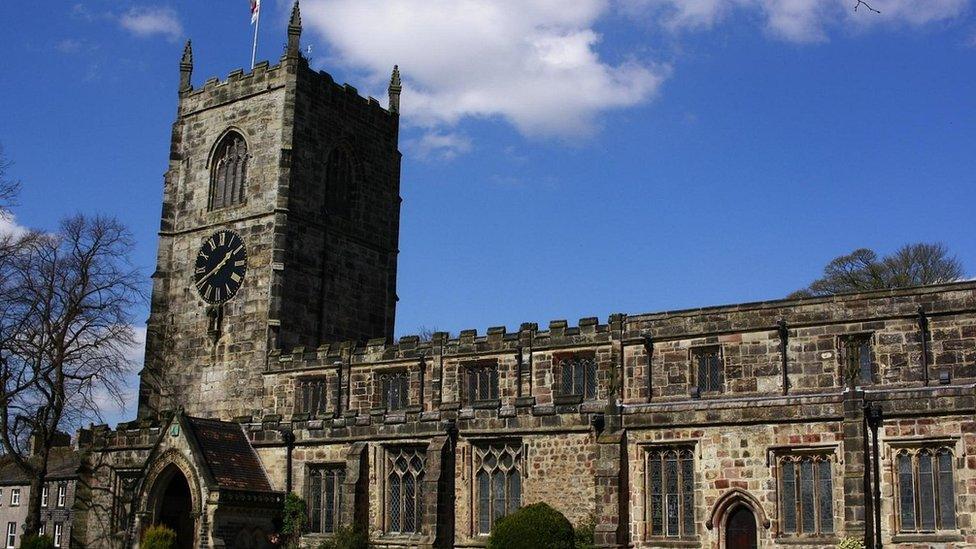Bishop defends listed church's solar panel plans

Bishop Ruth Worsley says it is important the church does its bit to combat climate change
- Published
The acting Bishop of Coventry has defended a Grade II* listed church's application to have solar panels fitted on its roof.
All Saints Church on High Street in Bedworth applied to have 68 panels fitted to help reduce its carbon footprint and save money.
But Nuneaton and Bedworth Borough Council's planners have recommended the scheme is refused because of the building's historic status.
Bishop Ruth Worsley said it was "really important" for the church to make a contribution to climate change.

The late-Victorian All Saints Church building is deemed to be of particular historical significance
"We believe that most planning authorities are seeking to do the best thing for their community too," she added.
"What could be better than ensuring our communities are still here in the next centuries to come?"
The church was built between 1888 and 1890 and granted Grade II* listed status in 1949.
This means it is deemed a particularly important building of more than special interest by Historic England. Only 5.8% of listed buildings have this status.
It is also located within Bedworth's Conservation Area
In its application, the church said installing solar panels on its south-facing roof would reduce carbon dioxide emissions by 18% a year and save 40% on electricity bills.
The development would also align with the Church of England’s aim to reduce its carbon footprint to net zero by 2030, external.
The application was sent to the planning application committee after 11 letters of support were received, citing environmental and economic benefits and a lack of visual intrusion.
However, a report to the planning application committee, external said while the authority supported solar panels in principle, the impact on the historic environment must be considered first.
"The council consider that the installation of the solar panels would result in substantial harm to the listed building and its setting," the report stated.
"Furthermore, there are no public benefits which exist which would significantly outweigh this harm," it continued.
A council spokesperson said planning officers did not consider details contained within the application's heritage statement "fully assess or describe the significance of any heritage assets affected", as required by planning guidance.
The committee will meet to discuss the application at 18:00 GMT on 19 March.
Follow BBC West Midlands on Facebook, external, X, external and Instagram, external. Send your story ideas to: newsonline.westmidlands@bbc.co.uk, external
Related topics
- Published10 January 2024

- Published14 December 2023
